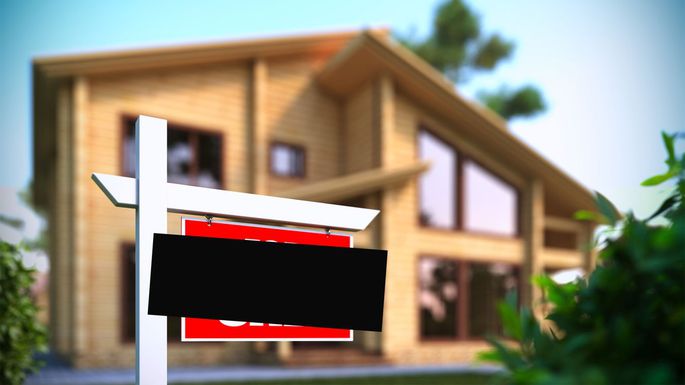When you first put your home on the market, hopes are high that a buyer will step forward. But as the weeks and months drag on with no bites, what then? Does there come a time when you should reverse gears and unlist?
Taking your home off the market isn’t an easy decision. Once you do, your listing will go from “active” to “withdrawn” in the multiple listing service—a status that basically means your home is no longer for sale, explains Aaron Hendon, a real estate agent at Christine & Company in Seattle.
But here’s the good news: Pulling that “For Sale” sign from your front lawn may actually be a smart move. Here are six signs it’s time to consider taking your house off the market, and why it might be wise.
1. Your financial circumstances have changed
If your personal finances have changed since you listed your house, you may need to postpone selling it. There are a number of life events that can negatively affect your finances:
- You were laid off. As a result, you can no longer qualify for a mortgage to purchase your next house.
- Your employer reduced your hours. This can hurt your debt-to-income ratio, one of the key factors mortgage lenders look at when assessing loan applications.
- Your car broke down. Large emergency expenses such as this can derail your next home purchase if you have to dip into your down payment money to pay for the repairs.
2. You’re getting only lowball offers—and you’re not willing to negotiate
Hopefully, you listened to your real estate agent’s advice when setting your list price. But if you priced your home too high, and you’re not willing to budge, odds are good it’s going to sit on the market, which can make it more difficult to sell.
“If your house is still for sale after a month, buyers are going to assume something’s wrong with it,” says Seth Lejeune, a real estate agent with Berkshire Hathaway in Collegeville, PA.
The exception? “Luxury homes sometimes take longer to sell, because you need a specific type of buyer, but luxury home sellers are generally not under time pressure to sell,”says Jane Peters, a real estate broker and owner of Home Jane Realty in Los Angeles.
3. You discover a problem in the home that needs to be fixed
Many purchase agreements have a home inspection contingency, which gives buyers the ability to walk away from the sale (without forfeiting their earnest money) if they find there are issues with the house that the seller isn’t willing to address. This is one of the most common reasons why deals fall through, considering a certified home inspector will evaluate about 1,600 items that make up a property’s foundation, structure, electrical, plumbing, and HVAC systems.
Consequently, if a buyer terminates a sales contract because there’s a physical issue with your house, it often makes sense to take your house off the market while you fix the problem.
4. You have to make a home improvement
Sometimes, homes just don’t sell because they can’t compete with other comparable homes that are on the market. For instance, this could occur when you list your home at the same price as the guy across the street but your neighbor’s house has a brand-new kitchen—and yours doesn’t.
“Buyers look for something that’s move-in ready and not a money pit, so if you’ve got a house with a very dated kitchen and all the neighbors have renovated ones, it’s probably time to focus on that,” says Jim Paulson, owner and broker at Progressive Realty Corporation in Boise, ID.
Withdrawing your listing can give you time to make a big home improvement, Peters says. But make sure you know which features today’s buyers are clamoring for before you go swinging a sledgehammer and relisting your home. Generally, revamped kitchens and bathrooms add the most value to a property. Hot tubs, not so much.
5. There’s too much competition, and too few buyers
No surprise: Whether a home sells or not depends on the law of supply and demand. When there’s a glut of homes for sale and buyers are flooding the market, this creates a buyer’s market. In that type of economic climate, you might have trouble selling your house regardless of whether it’s in tiptop shape or priced aggressively.
Note: Today, it’s a seller’s market in most major U.S. cities, but there are markets where buyers have the advantage. In Chicago, for example, homes are selling in a whopping 108 days, on average, and for roughly $16,000 below list price.
6. You have a lousy agent
If your agent isn’t responsive, or doesn’t have a good explanation for why your home isn’t selling, you might want to consider a new one, says Teresa Stephenson, vice president of residential brokerage for Platinum Properties in New York. Taking your house off the market while you look for one, and canceling the listing agreement with your agent, would give you time to find a real estate expert that’s right for you.
Original article found at: https://www.realtor.com/advice/sell/should-you-take-your-home-off-the-market/

